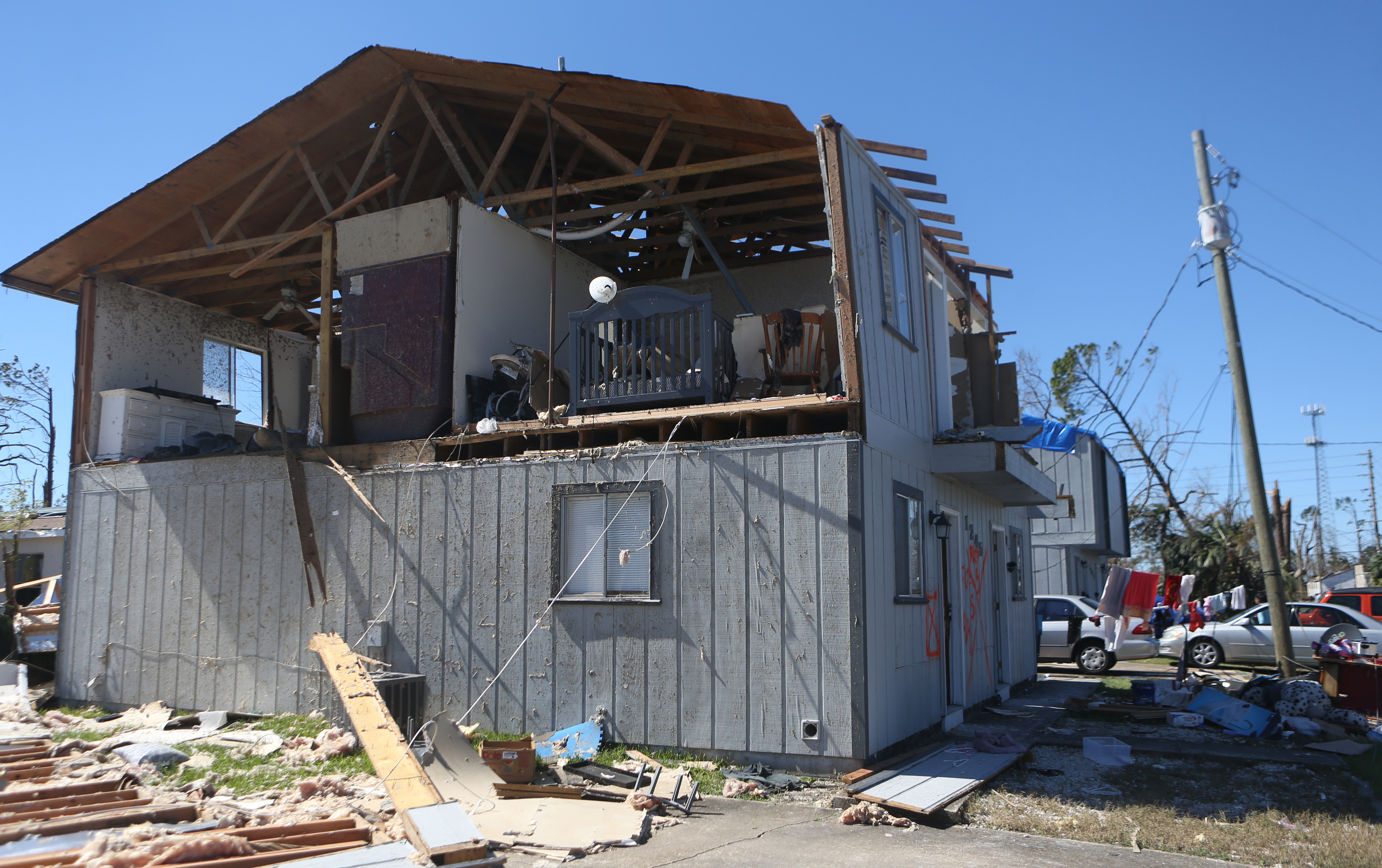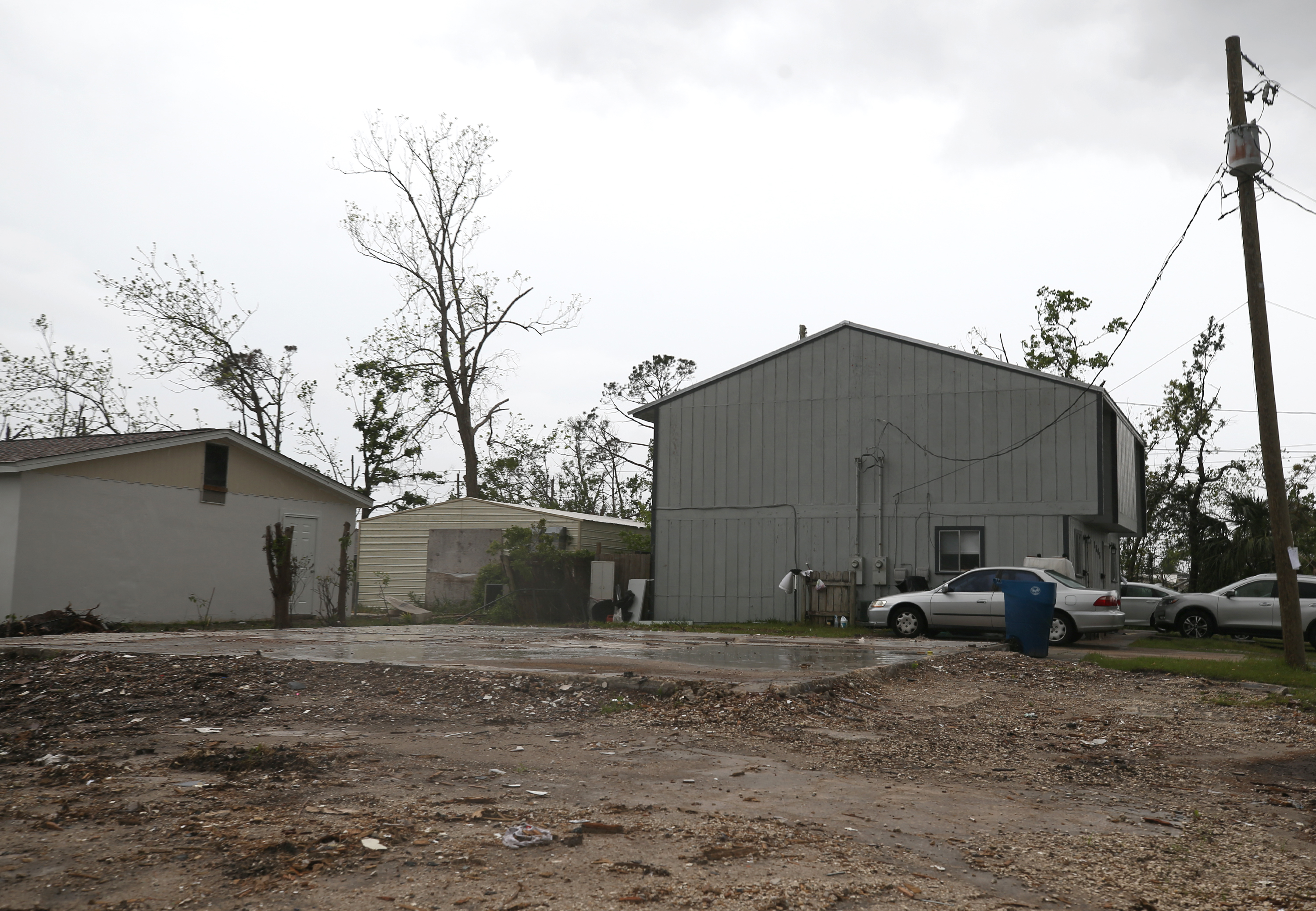Six Months Later
'Nothing is the same anymore'
The future seemed impossible the first few days after Hurricane Michael.
Everything was gone. The schools, the churches, the electrical grid, cell phone service, the forest, the businesses, the government buildings, the houses — it was all heavily damaged. One four hour storm and everything the community spent years working toward was gone. Or at least, it felt that way.
“The media keeps saying Bay County is resilient,” said Wayne Wright, the day after the storm. “But this is going to need a miracle worker.”
But the future always comes. Six months later, children are back in school taking the state’s mandatory tests. Church services are happen every Sunday. Homes are being repaired or torn down. Life marches on, even as the aftermath of Michael continues to unfold beside it.
For the six month anniversary, the News Herald tracked down some of the people we interviewed in those first few precarious days after the Category 4 hurricane to see where they are now.
Wayne Wright
The old oak tree that plunged into Dale Arnold’s living room, landing between him and his best friend Wayne Wright as they watched The Weather Channel, was cleared away and patched over with a blue tarp months ago.
That — and the utilities being back on — is just about the only thing that’s changed.
The arrangement was only supposed to last a day or two at most, with Wright returning to his apartment in the senior living St. Andrews Towers, after the storm. But Michael chewed holes in the high rise and when he tried to go back, he found movers packing up his things.
The latest news, he said, is he might be able to return in October, a full year after the hurricane.
And just like that, Wright became a long-term guest at Arnold’s house, settling back into his recliner in the living room where this all started. Who cares if an entire wall is missing and mold is creeping along the cracks in the ceiling?
“We’ve cleaned it up,” Wright said. “We spray the mold down with white vinegar and that will take it away for awhile and then it comes back.”
There’s other problems with the house too, places where the floor is starting to feel suspiciously spongy and where the ceiling cover Arnold installed — to make his late wife happy — got too wet in the storm and fell down.
A constant stream of contractors buzz the giant, red doorbell installed on the backdoor “promising the world,” Arnold said. They come in, swearing they can fix everything. Sometimes, they don’t even look at the house first.
But the reality is, all they given him is business cards and that doesn’t keep the rain out.
Besides, Arnold said, he’s getting too old for this. At this point, he’s hoping the house is declared a total loss by insurance, and that by the one year anniversary both him and Wright will be moving into the Towers.
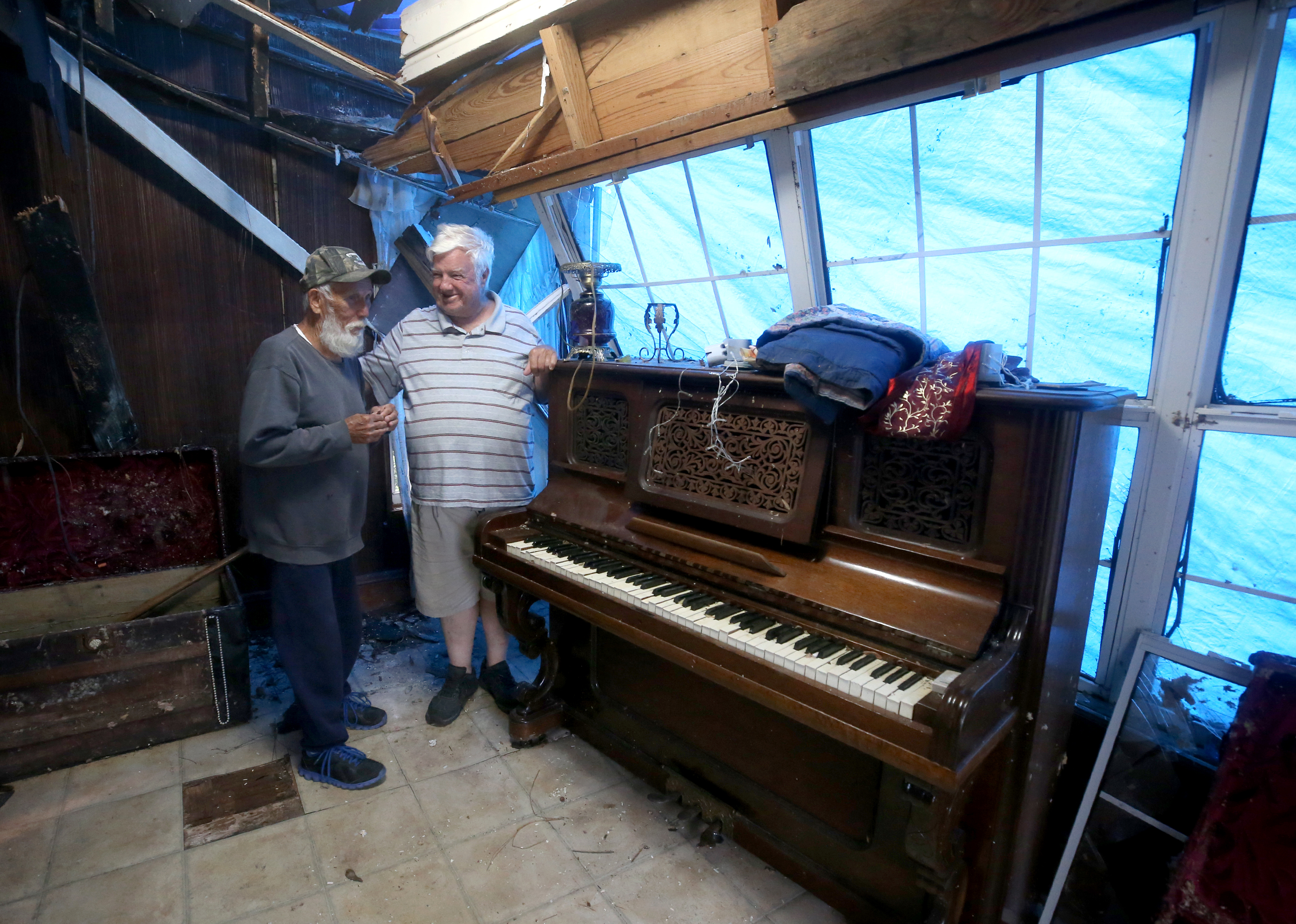
Ashley Brown
For the sixth time in six months, Ashley Brown unpacked a plastic toy bulldozer.
It’s one of those bright yellow cheap plastic toys, and it’s not even really a bulldozer as it has some sort of a drill instead of a bucket on the front. But it was handed to her 3-year-old, Adrian, by a Red Cross staffer right when he was brink of losing his cool. The family didn’t even have a real pair of shoes after fleeing their apartment during the hurricane, at least her kid had a toy to keep him entertained.
The toy is one of the few things she has left to pack up and move.
Brown, her mother and her two kids spend five days in the Rutherford High School shelter after Hurricane Michael, and when the generator failed there, they were among the people packed into buses and brought to a different shelter in Panama City Beach. They stayed long enough to collect five of the little toy trucks.
“We got to go back to our house but it was pointless,” Brown said. “Someone stole everything that they could or wanted. Even out of our broken car.”
With nothing old to go back to and a new baby on the way, Brown, her mother Aricka Roundtree and the kids went farther inland to Dothan Alabama to start over. In December, she brought baby Aurelia to their small apartment after a complicated pregnancy. In January, Adrian turned four. He’s only just now getting to the point where he’s not terrified every time it rains.
They stayed with relatives and friends, then Roundree found a place they all crammed into. On Saturday, Brown and the kids moved into their own place. There’s still a long list of things they need to replace, Brown said, and most of the people can’t grasp the magnitude of what happened. They think that six months is enough time that it should all be fixed, but housing isn’t built that fast.
“I have been trying hard,” but it doesn’t feel like home, Brown said. But when she thinks about going back to Panama City, “I’m not sure. I have came to visit, but nothing is the same anymore and that really hurts.”
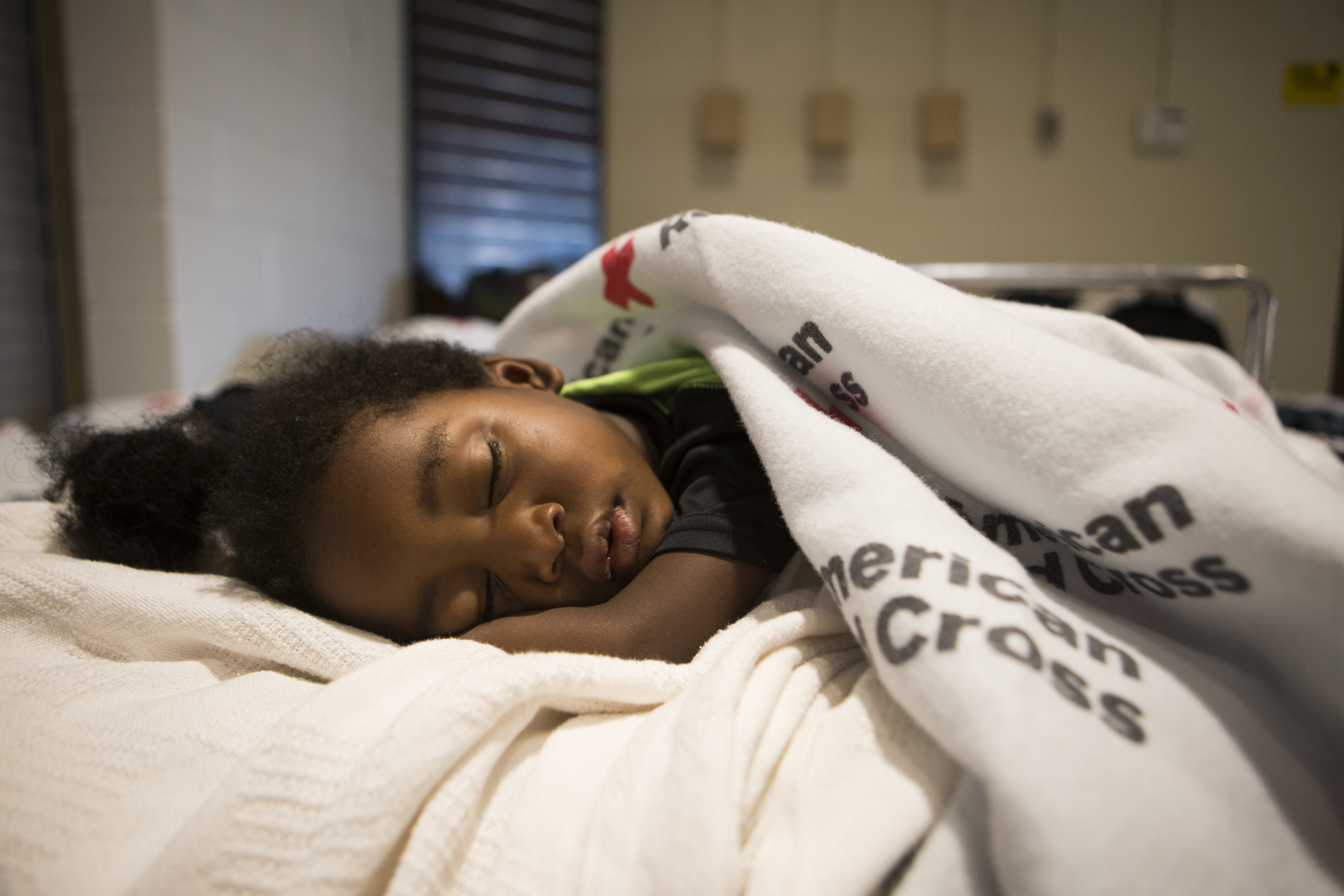
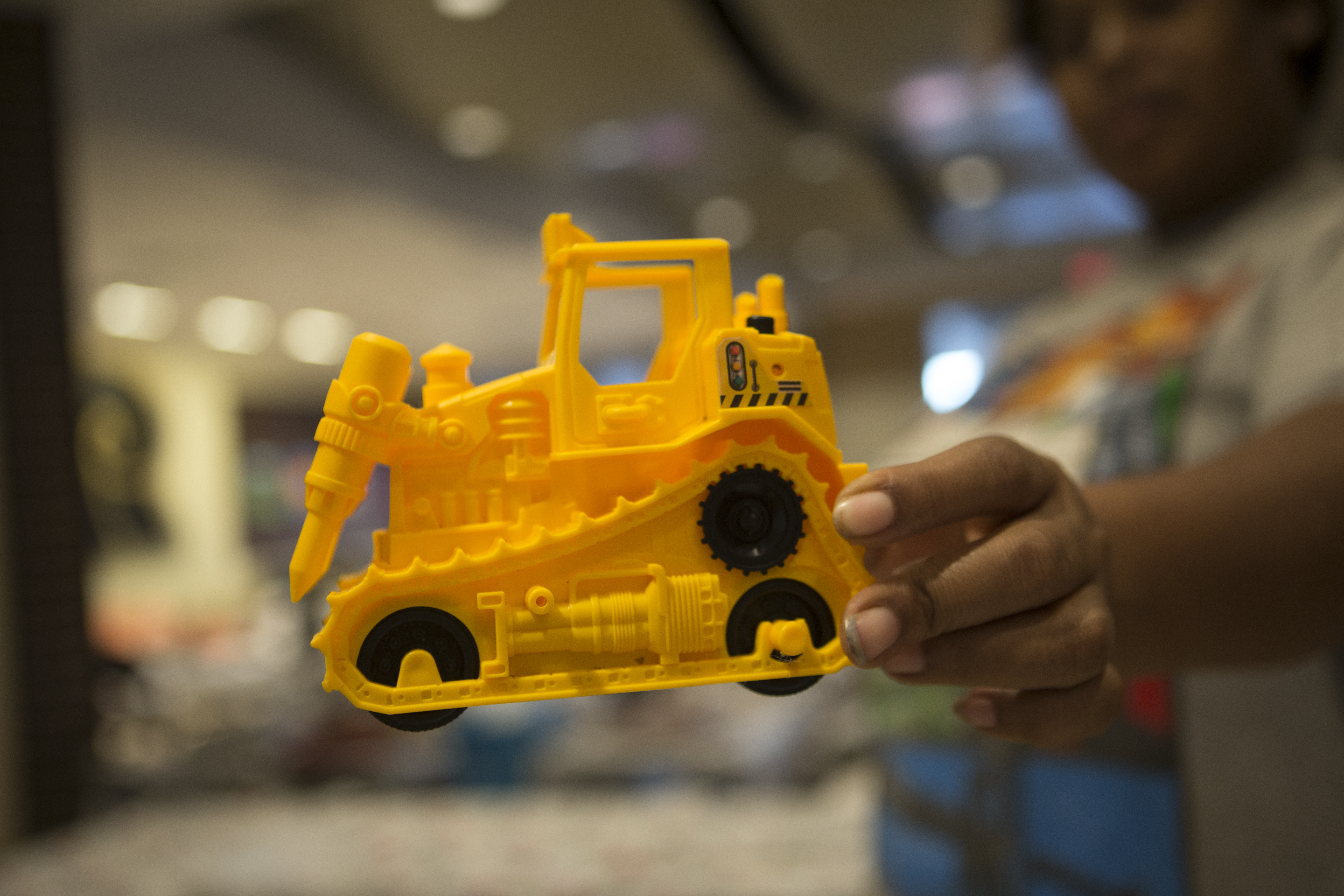
Marguerite DiSpirito
For four months-and-a-half months, Marguerite DiSpirito left her daughter’s home every day in search of a new place to live.
The internet listings were unreliable at best as one — many places never updated their photos after the hurricane and two — many places didn’t have the ability to update at all, as the internet was still an unrestored luxury. Phone numbers were no better, between the slow restoration of landlines and the number of people who had changed numbers during the Great Verizon Outage.
And so, DiSpirito settled on good, old-fashioned door knocking to find a place to live.
DiSpirito is a consistent person. For the first eight days after the hurricane, she never made it past the intersection of U.S. Business 98 and South Tyndall Parkway, instead spending the entire day directing the flow of first responders to and from Mexico Beach with a flag broken off a truck. It was a routine she fell into and stuck to until the traffic light was fixed. But it also meant she never really saw what happened.
When she fell into her new routine of apartment shopping — hers, she learned after those eight days directing traffic, was a total loss — she saw everything. The steeple of the church she attended broke off and was lying on the ground, with large parts of the roof gaping open. But it wasn’t just her church - all the churches were like that, the buildings too. From her seat on the trolley, she watched as buildings were torn down or decayed.
When she wasn’t gaping out the window, she talked to people. Listening to hurricane story after hurricane story, and asking about living accommodations. It was in one of these conversations that she met someone who had a friend moving out a tiny studio apartment. Later that afternoon, she ran into the same man and the friend who was moving out. She called the landlord on the spot.
“It was a miracle,” she said.
Now, she’s settling into her new place, collecting new furniture from the side of the road and buying a supply of food for the neighborhood cats. Her new routine involves volunteering at her church, which has resumed some of its programming. But it’s not back to normal, she said. Nothing is.
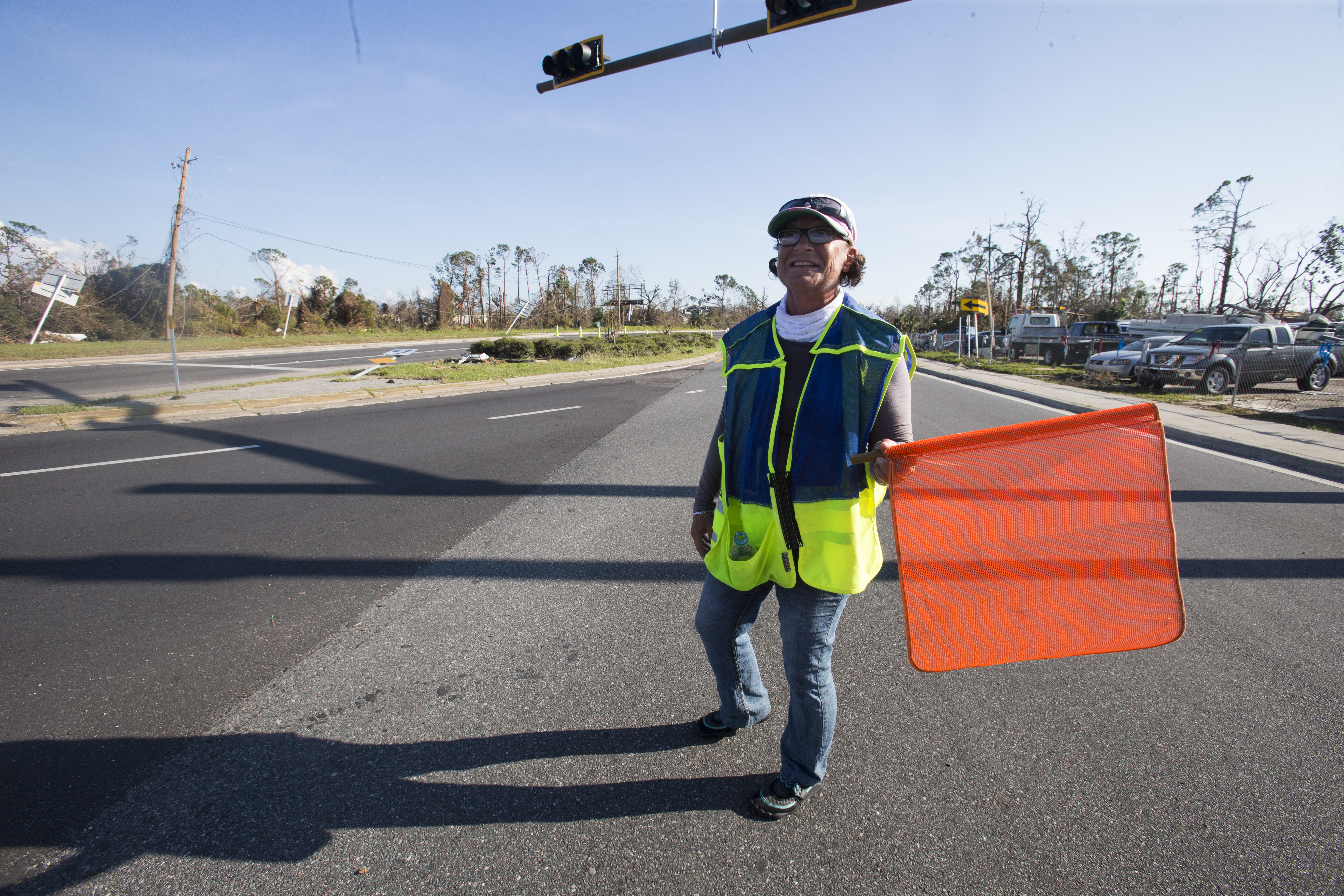
Deep Patel
Day after day motorists would slow down on Jinks Avenue, dangle their cell phone out the window and take a photo of the crib, exposed to the world when Michael peeled back the wall of the two-story townhome. Peering into a room they were never meant to see but couldn’t look away from, the horrible ‘what if’ would creep in — what if a baby had been in the crib during the storm.
The house developed a pseudo-fame.
“It was pretty sad,” said Deep Patel. “We would see people slow down just to take a picture.”
There was no mystery to the house for Patel — it was just the shell of what was his home. He knew no one was there when it happened, as his family fled to a concrete motel to ride out the storm, rightly worried about what would happen to the stick construction of the house.
The end result was worse than he thought it could be.
“It was all gone,” he said. “The storm wiped out a lot of dreams … we had to start from scratch.”
Patel watched as the crib house was torn down last week. It’s just an empty concrete slab now. ‘Tourists’ don’t slow down anymore, because there’s nothing to see here. The world is moving on.
Patel’s grandparents, who lived with him, have moved next door to stay with other relatives and he’s staying at a hotel. It’s a temporary solution.
They’ve filled out applications looking for another place to live, but everyone says it will be at least a six-month wait, Patel said. They won’t consider any place outside of Panama City yet though. They’re not ready to give up.
